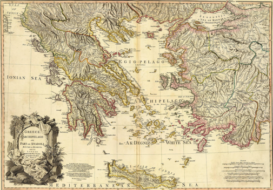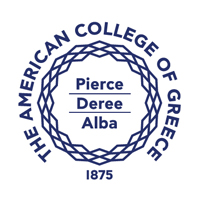Overview
Founded in 2019, the Institute for Hellenic Culture and the Liberal Arts (IHCLA) aspires to have an impact far beyond the academy by promoting a simple fact: Hellenic culture provides not only the basis for all liberal arts education but also the model for successful popular government based on principles such as personal and civic responsibility, civilian control of the military, resistance to tyranny, law applied without respect to person and the right to trials by a jury of one’s peers. Beyond its contributions to government and education, Hellenic culture arguably produced or advanced more scientific, aesthetic and intellectual disciplines than any culture before or since, including astronomy, geometry, music, drama, philosophy, history, ethnography and rhetoric. In a very real sense, the modern West and much of the rest of the world inhabit an intellectual and aesthetic space largely created by Hellenic culture.
The IHCLA differs from other centers focused on Greek culture by explicitly tying the liberal arts tradition to its origins in Hellas and by emphasizing its relationship to citizenship and popular government as well as the continuing influence of Greek culture on the world after the classical and Hellenistic ages. “Hellenic culture” as envisioned by the IHCLA incorporates such crucial features as the Neoplatonism of early church fathers and the research of Byzantine scholars; it includes the modern Greek nation’s struggle for independence and its resistance to twentieth-century totalitarianism; it honors the poetry of Cavafy and Seferis as well as the music of Theodorakis and Hatzidakis.
Check out our team, activities and events through the Initiatives bar above, and connect with us on social media by following the links:
Questions or comments? You can reach us via email at [email protected].
We look forward to hearing from you!
Mission
The IHCLA seeks to promote and foster appreciation of the significance and relevance of Hellenic culture and the liberal arts in the contemporary world in order to propel Greece’s cultural and economic growth in ways consistent with Hellenic values by means of research, academic and cultural exchange programs, fellowships, internships, lectures, policy papers, media productions, symposia and conferences.
Vision

Pericles called Athens an “education for Greece.” Today, Greece has a unique opportunity to offer an “education for the world,” providing an example of the ways the past informs the future and of the values needed to inspire and guide innovation. Ancient Greece teaches us the importance of excellence (αρετή), competition, freedom, self-government, civic responsibility, individual in the community and education of citizens in the liberal arts. Byzantine Greece underscores the importance of values derived from faith, family, individual responsibility, duty, sustainability and stewardship (επιμέλεια). Greece’s history and experience in the modern world especially teaches us the importance of liberty (ελευθερία), endurance, innovation and heritage.
In the twenty-first century, as in the fifth century B.C., Greece sits at the intersection of two worlds and is again poised to offer leadership in the face of international and local challenges. Greece continues to highlight the importance of looking back to remember and profit from history as we face the future.



